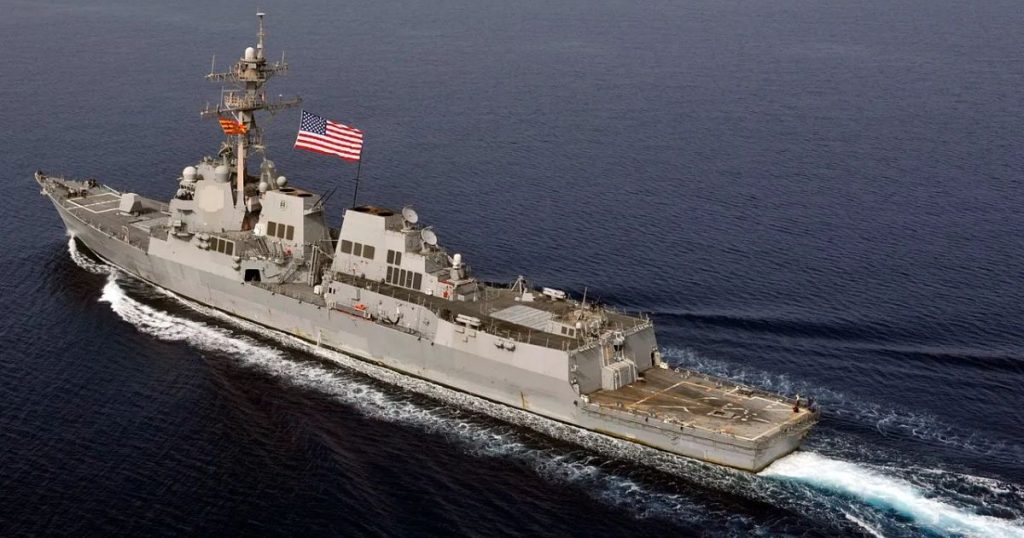U.S. Naval Deployment in Caribbean Sparks Outcry from Venezuela

Relations between the United States and Venezuela have grown more tense as Washington increases its military presence in the Southern Caribbean and nearby waters. According to U.S. officials, the expanded deployment is aimed at combating the threat posed by Latin American drug trafficking organisations.
President Donald Trump had made the fight against drug cartels a key pillar of his administration, linking it to broader goals of curbing migration and enhancing border security.
Though it’s not unusual for U.S. Coast Guard and Navy vessels to operate in the area, the current military buildup far exceeds typical deployments. A U.S. official, who asked not to be named, said Thursday that seven warships and one nuclear-powered fast attack submarine were either already in the region or expected to arrive within days.
Venezuelan President Nicolás Maduro has condemned the increased U.S. presence.
The Pentagon has not offered a public explanation for the operation’s specific objectives. However, the Trump administration previously authorised the use of military force against drug cartels and criminal organisations, directing the Defence Department to prepare strategies for doing so.
Venezuela filed a formal complaint with U.N. Secretary-General Antonio Guterres on Thursday, accusing the United States of violating the principles of the United Nations Charter.
“It’s a massive propaganda operation to justify what the experts call kinetic action – meaning military intervention in a country which is a sovereign and independent country and is no threat to anyone,” Venezuela’s U.N. Ambassador Samuel Moncada told reporters after meeting with Guterres.
The White House reiterated its stance, stating that Trump remains committed to using all available tools to curb the inflow of illegal narcotics.
“Many Caribbean nations and many nations in the region have applauded the administration’s counter drug operations and efforts,” White House press secretary Karoline Leavitt told reporters.
Earlier in the year, the administration designated Mexico’s Sinaloa Cartel, other Mexican drug gangs, and Venezuela’s Tren de Aragua as international terrorist organisations.
Among the military vessels deployed are the USS San Antonio, USS Iwo Jima, and USS Fort Lauderdale, carrying around 4,500 personnel, including 2,200 Marines, according to sources familiar with the matter.
Intelligence-gathering flights using U.S. Navy P-8 surveillance aircraft have also been ongoing in the region, with operations remaining in international airspace, according to officials.
“Our diplomacy isn’t the diplomacy of cannons, of threats, because the world cannot be the world of 100 years ago,” said Maduro, whose government said last week it would send 15,000 troops to states along its western border with Colombia to combat drug trafficking groups.
Maduro has additionally encouraged the formation of civil defence groups, calling on them to conduct training exercises every Friday and Saturday.
His government frequently accuses domestic opponents and foreign actors of collaborating with U.S. agencies, such as the CIA, to undermine Venezuela—accusations both the U.S. and Venezuelan opposition figures deny. Caracas refers to international sanctions as part of an “economic war.”

Your point of view caught my eye and was very interesting. Thanks. I have a question for you.